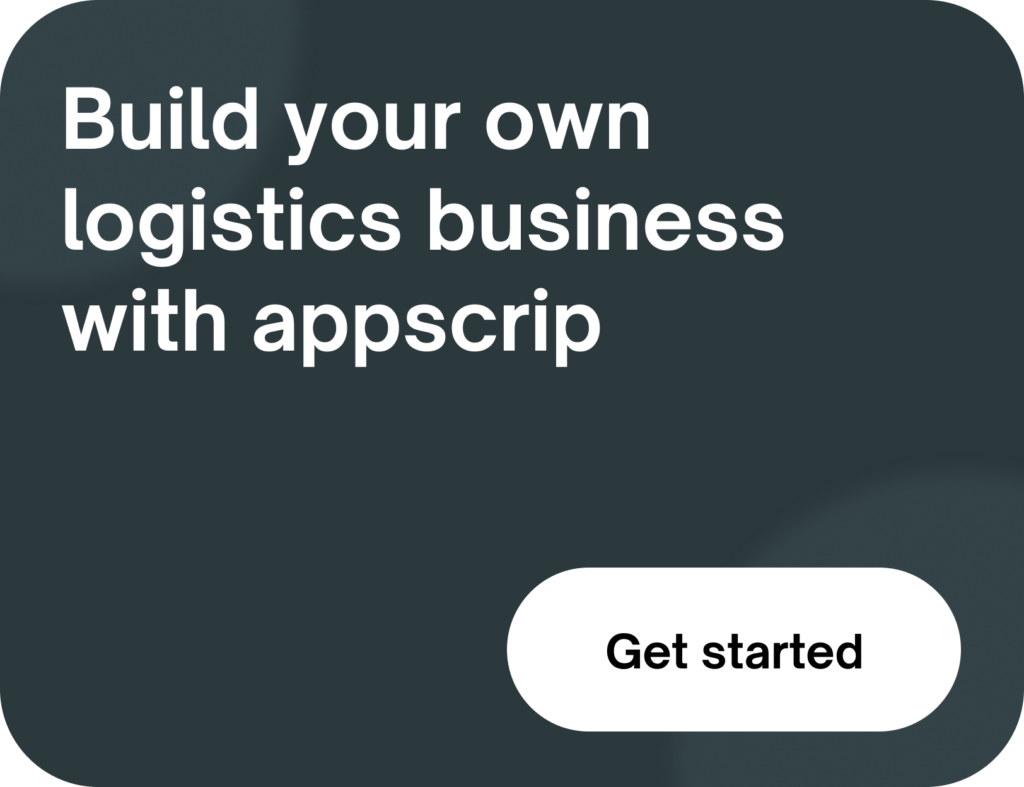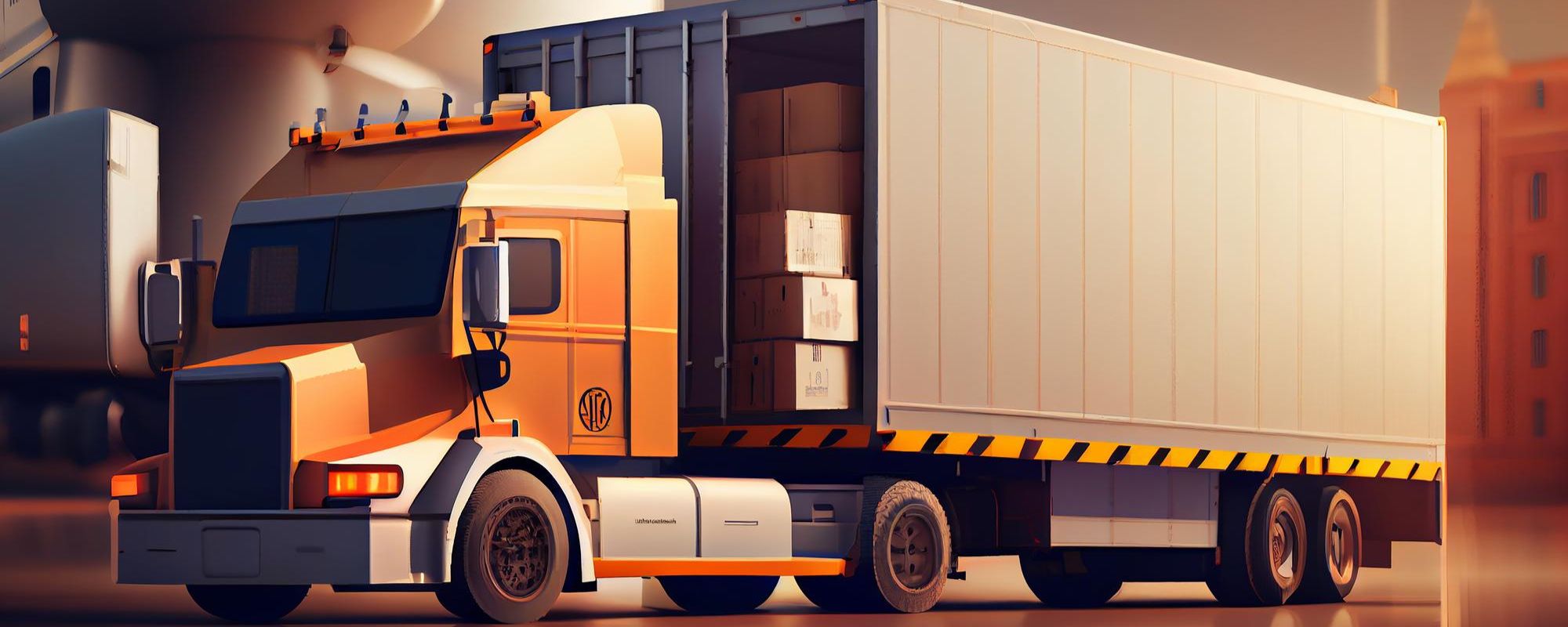In the logistics industry, truck booking apps have emerged as an essential tool for efficient and convenient transportation solutions. These apps connect shippers and carriers, streamlining the process of booking trucks for freight transportation.
Our blog explores the cost of developing a truck booking app like Uber Freight and other factors entrepreneurs should consider when developing such an app.
Demand for efficient and convenient transportation solutions
Truck booking apps have revolutionised the logistics industry by providing a digital platform that connects shippers and carriers, facilitating transparent and efficient freight transportation.
Truck booking apps offer a convenient and reliable platform to connect with a vast pool of carriers, access real-time information, and streamline the shipping processes.
The ability to track shipments, compare prices, and access reviews and ratings further enhances user experience, making truck booking apps an asset in the logistics industry.
Cost of Developing A Truck Booking App Like Uber Freight
| Type Of App | Timeline | Cost | Functionalities |
| Simple app with basic features | 3-4 months | $40-50K | User registration, booking, tracking, payment integration, and notifications |
| Not too complex app with extensive features | 4-6 months | $50-100K | Route optimisation, multiple deliveries, feedbacks, payment integration, and administrative dashboards |
| Highly complex app with complex features | 6-9 months | $100-200K | Advance route optimisation, dispatching algorithms, multi-platform support, API integrations, real-time analytics and reporting, document management, customised features. |
Factors Influencing the Cost of Developing a Truck Booking App
Entrepreneurs venturing into the development of a truck booking app must comprehend cost factors associated with such a project helping them make informed decisions and plan their budget wisely.
Cost of developing a truck booking app is hinged on several factors such as:
- Development Team: The team’s size and expertise level will determine the overall cost.
- Technology Stack: The choice of technologies and platforms used for app development can impact the cost.
- Native app development may require separate teams and higher expenses compared to cross-platform development using frameworks like React Native or Flutter.
- Features and Functionality: The complexity and number of features you want to include will influence development costs.
- Basic features are user registration, booking, tracking, payment integration, and notifications, while advanced features like route optimisation, document management, and real-time analytics require additional development effort.
- User Interface and Design: The complexity of the design, custom animations, and the need for responsive layouts across different devices will affect the design cost.
- Backend Development: Building a robust backend infrastructure, including server setup, database management, API integration, and scalability, is crucial for a truck booking app.
- The complexity of backend requirements, such as handling large-scale data, user management, and integration with external systems, will impact the cost.
- Third-Party Integrations: Integrating third-party services like payment gateways, map APIs, SMS gateways, and analytics tools may require additional development effort and licensing fees.
- Testing and Quality Assurance: Rigorous testing is essential to ensure that the app functions smoothly and securely.
- Security and Data Privacy: Implementing robust security measures, such as data encryption, secure authentication, and compliance with data privacy regulations, is crucial for a truck booking app.
- Maintenance and Updates: Budgeting for long-term maintenance and support is important for a sustainable app.
- Marketing and Launch: Promoting the app and gaining traction involves marketing efforts, including app store optimisation, digital advertising, social media campaigns, and content creation.
Key Features In a Truck Booking Mobile App
In a logistics movement deal, shippers, receivers, carriers, and drivers fulfil the needs of each other. Truck booking apps bring carriers, drivers, shippers, and receivers on a single platform so that shippers can connect to service providers who seem best to them.
Trucking apps come with different modules that satisfies the needs of specific stakeholders’ as stated below:
Carrier App
Carriers include airlines, shipping lines, parcel companies, trucking apps, etc. Carrier app has information of the goods being transported from one place to another via road, water, or air.
Manage Bookings – Carriers can check bookings, manage the fleet and set prices.
Manage The Fleet – Carriers can check the available fleet, booked trucks, type of vehicle, fuel cards, operating costs, and much more.
Manage Drivers – Carriers can add or remove drivers, update contact details, track their location, check availability, etc.
Manage Shipments – Carriers can collect and manage information regarding shipment, goods type, travel routes, invoices, taxes, etc.
Analytics – Carriers can save data of business deals to enhance business. They can learn about loyal clients and conduct marketing campaigns.
Notifications – All information, such as invitations for deals and alerts, can be sent via notifications.
Reports – The app allows for managing and analysing monthly/weekly reports to gain necessary insight.
View Feedback – Carriers can easily check the feedback and rating given.
Truck Reports – All vital info on driver and vehicle can be updated and saved. Report on driver performance, truck mileage, earnings, ratings given by the clients and shippers can be tracked.
Help and Support – 24*7 support is available as shippers can contact the admin in case of any glitch, errors, or queries in the app.
Shipper App
A shipper is the one who owns the commodities or goods that are being transported. The app is designed specifically to fulfil the needs of shippers.
See the Available Vehicles – Shippers can search multiple vehicle available for transporting goods. They can also check available vehicles and drivers list.
Send Shipping Request – Shippers can book a request by providing information such as freight dimensions, delivery addresses, pick-up, etc.
Push Notifications – The shipper is informed regarding acceptance of booking by the carriers and other necessary details via notifications.
Track Shipments – Shippers can track the location of their freight from the point of pick-up to the point of delivery.
Make Payment – Shippers can even make a secure payment via credit card, debit card, internet banking, and other mediums.
Booking History – The app allows the shippers to view their past, present, and upcoming bookings.
Rate and Review – Shippers can rate carriers and drivers about the pricing, service, and fleets
Fleet Operator Features
Negotiate With Shippers
Enables fleet operators to negotiate pricing with the shippers directly
Load Board – Fleet operators can view all nearby active loads matching their requirements based on the vehicle type and location.
Preferred Loads – Fleet operators can view all active loads matching their preferences
Load Update – Fleet operators are updated on each negotiation they win or lose
Assign Loads – Fleet operators can assign a load to the most suited driver on their volition
Track Drivers – Fleet operators can track their drivers in real-time
Track Loads – Fleet operators can manage and track all the loads, drivers have accepted
Driver App
The features of the Driver app consist of:
Driver Authentication – Drivers can register by submitting their phone number, name, email address, license, identity card, etc.
View Shipping Request – The app contains shipping requests with all the information about the load and logistics. Drivers can accept the request feasible for them.
Details About Shippers – Driver can check the entire info of the shipper before accepting a request. Driver can check pickup & drop location, budget, type, dimensions of load, and more.
Real-Time Chat – Drivers can chat with the shippers to strike a better deal or request any other information about the transportation request.
Built-In Navigation – The app even provides an inbuilt navigation to the driver. The navigation guides the driver as per his requirement.
Push Notification – Drivers will get notifications about payment received, transporting requests, messages from the client, etc.
Proof of Delivery – Once the load is delivered, the driver can upload pictures of the bill on the app for relevant stakeholders to view.
Admin Panel
The Admin panel provides overall control to the owners of the application. It helps them monitor all activities, parties, and transactions on the platform. The features include:
Dashboard – This provides an easy interface necessary to run operations on the platform. It displays all requests generated, transactions being honoured, delivery completed, and more.
Manage Drivers – Admins can activate or deactivate any driver profile, message them, track them, assign them new jobs, make payment, etc
Manage Trucks – Admin can remove or add trucks, update freight vehicles, and receive information about any enrolled vehicle
Manage Shippers – Admins have access to information about shippers. This feature allows admins to assist shippers in booking / accepting requests.
Manage Carriers – Admins can easily add or remove cargo and logistics companies to the platform.
Bill Management – Admins can calculate their commission and profit by monitoring and analysing all bills generated by carriers.
Reports and Analytics – Admins have access to monthly reports, feedback, and reviews. They can take action for any complaint against any stakeholder.
Offers and Coupons – Admins can provide coupons or discounts and offer as they deem it necessary to ensure shipper retention.
Conclusion: Cost Of Developing a Truck Booking App
Developing a truck booking app like Uber freight requires a comprehensive understanding of the logistics industry, the evolving market landscape, and the key features that drive success.
Entrepreneurs have an ideal product LoadUp, this white label load board software solution is a pre-built software designed specially to arm the freight brokers with technology for them to negotiate the best deals in the market and grow.
By understanding these aspects, entrepreneurs can embark on the development journey with confidence, aiming to provide a valuable solution in the ever-growing truck booking app market.

After an Engineering degree and a Diploma in Management I devoted 16+ years working in the automotive industry. My innate skill and extreme passion in writing, encouraged me to adopt it up as a profession. I have been writing for more than 10+ years in the software industry. The 400+ blogs I published are informative, exhaustive and interesting to a professional and causal reader.








